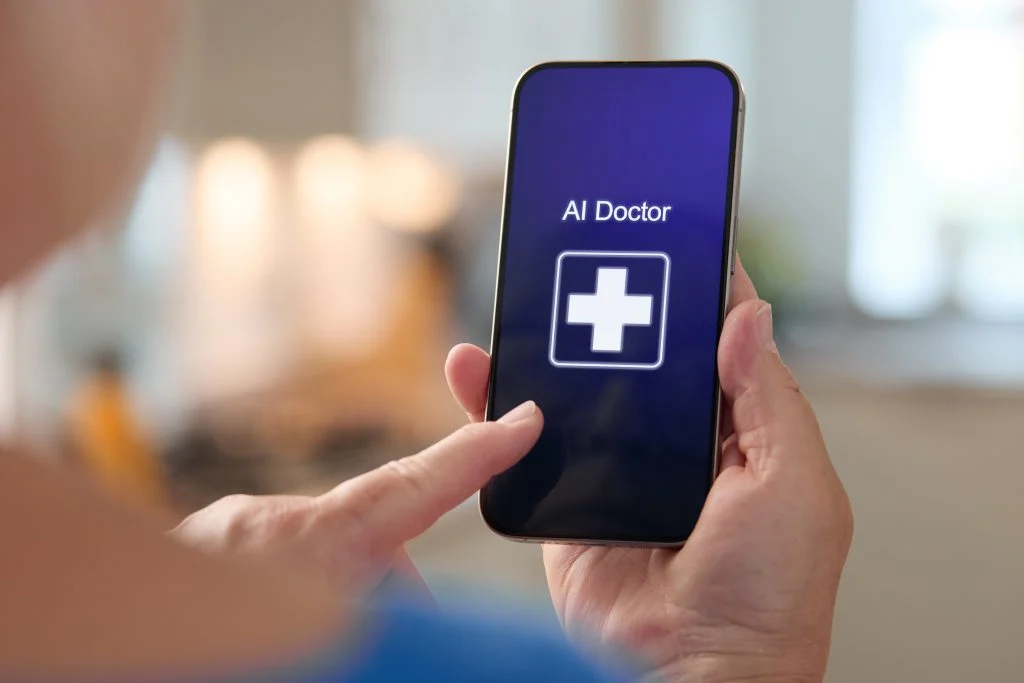
Can AI Help You Make Better Health Decisions?
14 Aug 2025
Feeling overwhelmed, but feel like you’re unable to talk to anyone about it? Artificial intelligence (AI) might help. According to a report by the South China Morning Post (SCMP), an increasing number of Singapore youths are turning to AI-powered chatbots for mental health support.
These tools offer privacy, convenience, and round-the-clock access—qualities that appeal to digitally native generations. As AI becomes more sophisticated, it’s not only used for mental health support but also for managing physical health, making medical decisions, and promoting overall wellness.
But with AI tools gaining popularity among many, can it actually help you make better health decisions?
Table of Contents
AI meets demand for instant, non-judgmental, and personalised care

AI tools are gaining traction in Singapore because they provide immediate responses without requiring appointments or in-person conversations. Not to mention, they’re free and easily accessible on your laptop or mobile phone.
Especially in Singapore’s fast-paced society, not everyone has the time or means to speak to a doctor or therapist. And sometimes, we may not even be in the mood to talk to another human being; this is where AI comes in handy.
For mental health in particular, AI can help users process emotions, track their moods, and learn coping mechanisms in a stigma- and judgment-free space.
Some AI assistants can also answer questions about sleep, nutrition, and exercise habits — great if you want quick, personalised advice based on your lifestyle and input.
How AI tools are shaping everyday health management
AI has expanded beyond mental wellness. It now powers many of the health apps we use, including fitness trackers, meal planners, menstrual cycle monitors, and tools for chronic disease prevention. These rely on AI to provide us with personalised advice and improve consistency.
For example, your smartwatch might collect data about your sleep patterns and suggest ways to improve rest quality. Your step counter can flag prolonged inactivity, nudging you to move more. AI then interprets these patterns to give lifestyle suggestions tailored to your habits, helping you make small, sustainable improvements.
For busy Singaporeans, particularly office workers and students, these digital health nudges can be highly effective and motivational. They offer support on the go and even suggest monthly challenges, making healthy choices easier to integrate into hectic routines.
What AI tools can and can’t do for your health

While AI can enhance preventive care and guide users in making healthier choices, like all things, it has limitations.
AI tools are excellent at supporting preventive care and encouraging healthy habits, but they cannot replace the expertise of medical professionals. They are not equipped to perform clinical assessments, identify complex conditions, or diagnose rare diseases. Relying solely on generic advice can often lead to delayed treatment or a false sense of security.
We should treat AI as a first step — a helpful guide that prompts us to pay attention to our health, not a substitute for expert medical care. If you’re experiencing ongoing symptoms or dealing with chronic concerns, consult a qualified doctor for a full evaluation.
AI can flag health concerns, but health insurance ensures you can act on them
Let’s say your AI app detects elevated stress levels, irregular heartbeats, or signs of a depressive mood. It might prompt you to get a check-up or consult a mental health professional. These follow-up steps, however, often come with costs, and that’s where your health insurance becomes essential.
Integrated Shield Plans (IPs) in Singapore can help offset expenses related to hospitalisation or diagnostics, especially if further tests are needed. Some corporate health plans even include coverage for outpatient visits, mental health consultations, nutritionist sessions, or screenings — all of which may be prompted by the use of AI tools.
Without health insurance, many people hesitate to seek follow-up care due to cost concerns. The result? Potentially serious conditions go unaddressed. Health Insurance bridges that gap and ensures that you can take action when it matters most.
Health insurance provides long-term protection that AI cannot replace

AI tools such as Wysa, Youper, and Woebot for mental health, as well as Fitbit, Apple Health, or HealthifyMe for physical health, are valuable for everyday guidance; however, they won’t cover hospital stays, chronic medication, or surgeries. For longer-term health issues, whether related to the heart, mental health, or metabolic conditions, you’ll need consistent follow-ups, prescriptions, constant monitoring, and possibly specialist care.
Having the right health insurance coverage in Singapore ensures that financial barriers don’t prevent you or your loved ones from receiving timely diagnosis and treatment. Younger people need to think ahead, even though they may feel invincible and completely healthy now. In fact, now is the best time to purchase health insurance—while you’re still young and healthy. With no pre-existing conditions, you’re more likely to enjoy lower premiums and full coverage without exclusions. As you age, premiums will rise simply because the risk of developing health issues increases over time.
In Singapore, there are numerous health insurance plans available. The three main types of health insurance plans in Singapore include: Integrated Shield Plans, Personal Accident Plans, and Critical Illness Plans. Integrated Shield Plans provide hospitalisation coverage, while Personal Accident Insurance offers protection against injuries from unexpected events, and some policies also include daily hospital cash benefits. Critical Illness Insurance provides payouts upon diagnosis of major health conditions.
Tip: Don’t forget to look into your company’s Corporate Insurance to see what benefits you are entitled to. Many offer extended mental health and wellness support that complements your personal plan.




